The Democratic Republic of Congo (DRC) on Wednesday expelled Mathias Gillmann, spokesman for the United Nations peacekeeping mission. The move followed a week of intense protests against the U.N. that resulted in 36 deaths, including four peacekeepers.
Congolese protesters are furious at the U.N. for the inability of its 20-year-old peacekeeping mission to protect civilians from militant gangs. The protesters charge the United Nations Organization Stabilization Mission (MONUSCO) with absorbing resources and infringing on DRC sovereignty, with little in the way of tangible security benefits.
The resurrection of a vicious rebel group called M23, purportedly defeated in 2013 but once again visiting horrors upon Congolese civilians, most recently called the effectiveness of MONUSCO into question.
Thousands of people have been displaced by attacks from the resurgent M23, adding to the astounding 4.5 million Congolese internally displaced by factional violence, plus 864,000 refugees driven out of the country. The DRC and neighboring Rwanda almost came to war over M23, as the DRC accused Rwanda of sponsoring the militant gang and using it as a proxy – precisely the sort of cross-border mischief a U.N. peacekeeping force should prevent.
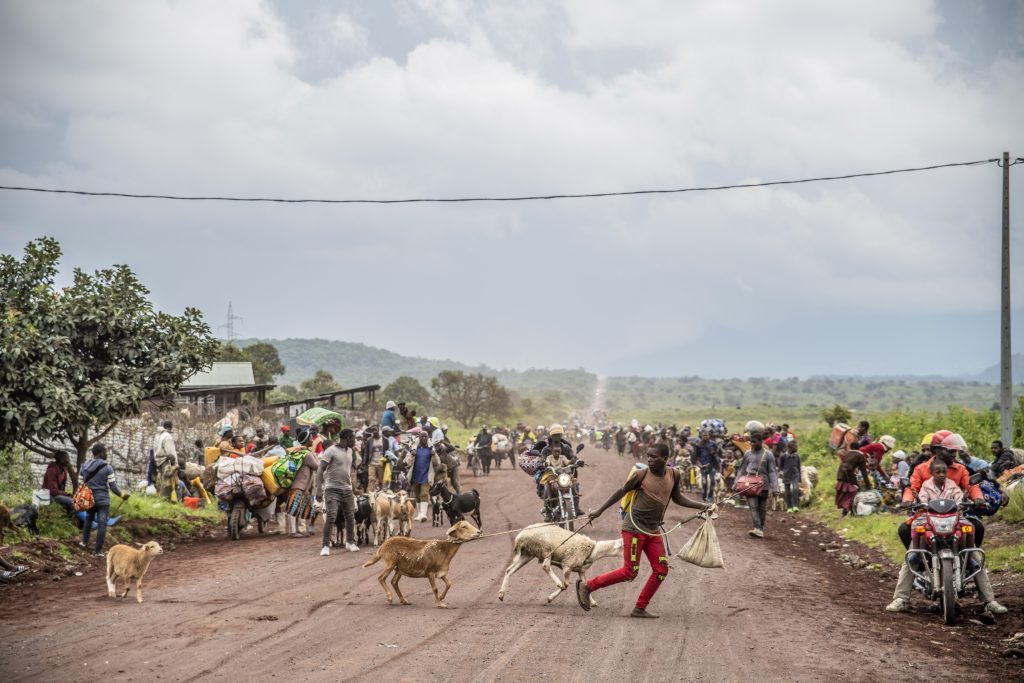
People walk on the road near Kibumba, north of Goma, Democratic Republic of Congo, as they flee fighting between Congolese forces and M23 rebels in North Kivu, Tuesday May 24, 2022. (AP Photo/Moses Sawasawa)
Anti-U.N. demonstrations turned violent last week in several DRC cities, and some peacekeeper units responded with deadly force.
On Sunday, a U.N. peacekeeping brigade opened fire at a border crossing between the DRC and Uganda, killing two policemen and wounding 15 others. The U.N. said the brigade, which was returning from leave, fired on the border post for “unexplained reasons,” causing “loss of life and serious injuries.”
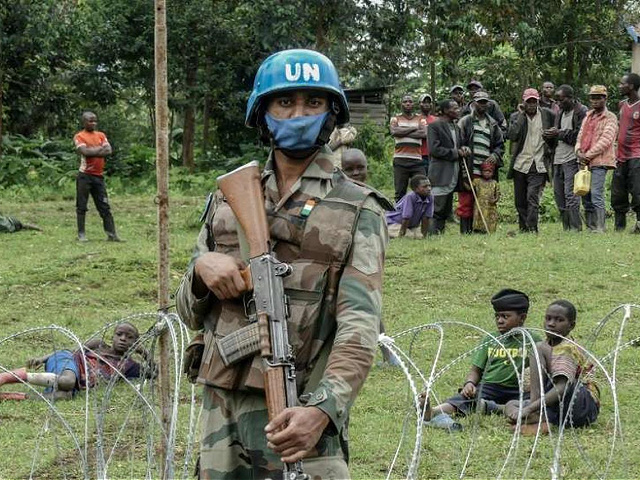
A peacekeeper holds his weapon during a patrol around the new base set up in Rugari, 50 km from the city of Goma, as the population watches the military in eastern Democratic Republic of Congo on January 28, 2022. (GLODY MURHABAZI/AFP via Getty Images)
Videos uploaded to social media showed the U.N. personnel engaging in a verbal altercation with DRC police and military personnel, who were evidently reluctant to open the border gate. The peacekeepers fired on the border guards, opened the gate themselves, and then continued shooting at the DRC personnel as they fled.
The head of the U.N. mission to the Congo, Bintou Keita, said she was “deeply shocked and dismayed” by the incident.
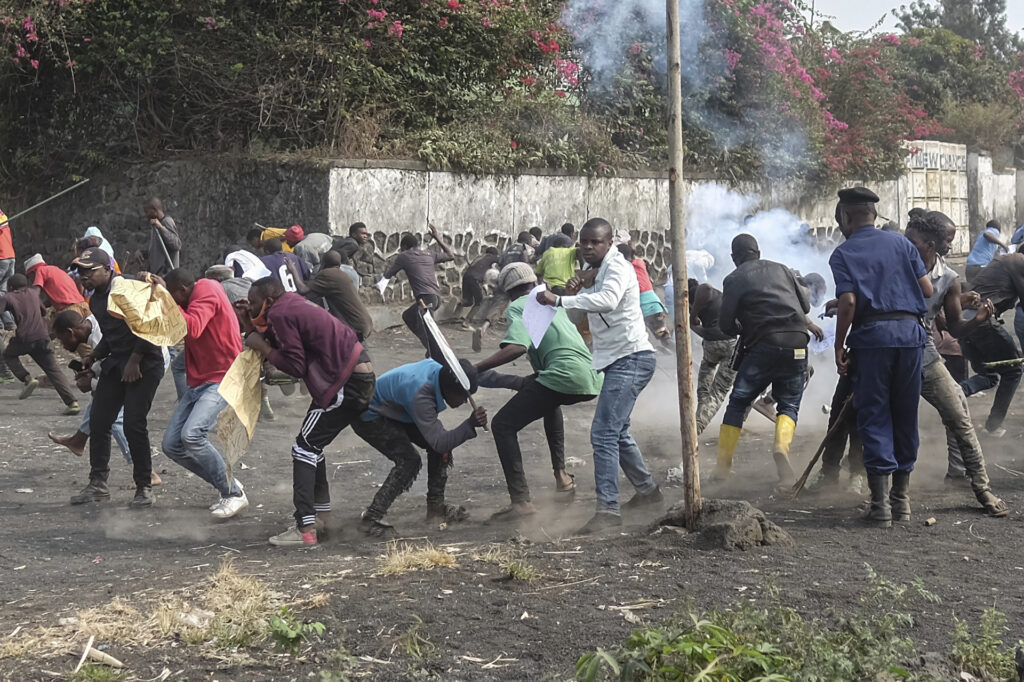
Demonstrators clash with police during a protest against the United Nations peacekeeping force (MONUSCO) deployed in the Democratic Republic of the Congo in Sake, some 15 miles (24 kms) west of Goma, Wednesday July 27, 2022. (AP Photo/Moses Sawasawa)
“Faced with this unspeakable and irresponsible behavior, the perpetrators of the shooting were identified and arrested pending the conclusions of the investigation, which has already started in collaboration with the Congolese authorities,” she said.
Keita said officials in the country of origin for the peacekeepers had been notified of impending legal proceedings against them. She did not name the country in question.
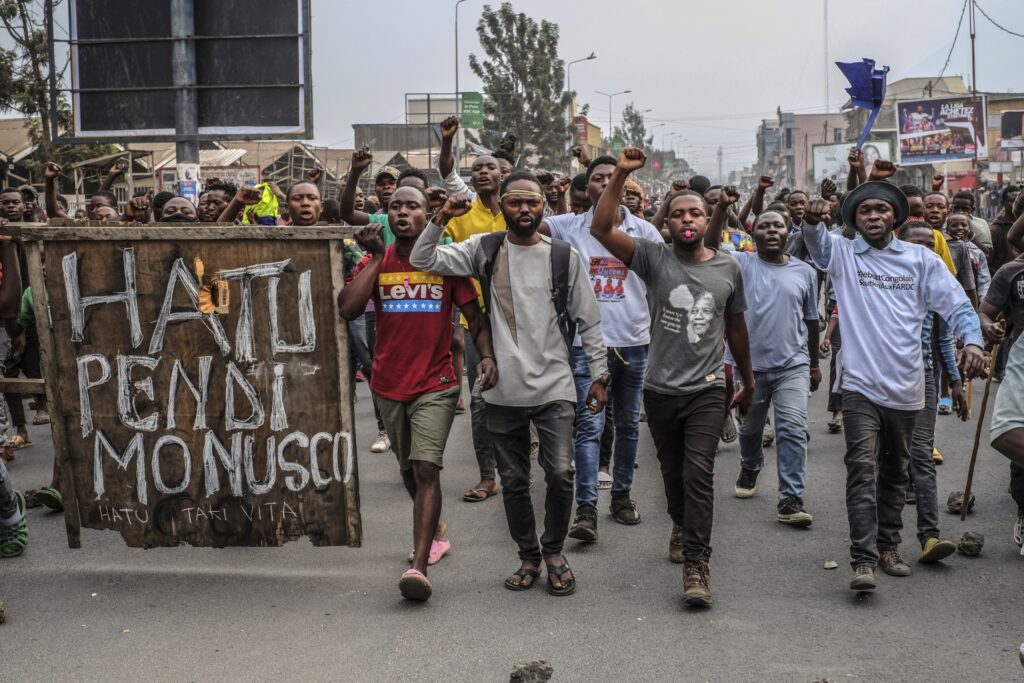
Residents protest against the United Nations peacekeeping force (MONUSCO) deployed in the Democratic Republic of the Congo in Goma Tuesday July 26, 2022. Demonstrators said they were protesting against the rise of insecurity and inaction of the UN in the region. The sign left reads: “Monusco no more” (AP Photo/Moses Sawasawa)
DRC officials said on Monday that MONUSCO spokesman Mathias Gillmann was asked to leave the country for making “indelicate and inappropriate” statements.
“The Congolese government considers that the presence of this official on the national territory is not likely to promote a climate of mutual trust and calm between Congolese institutions and MONUSCO,” said the DRC foreign ministry.
Although the DRC did not specify exactly what Gillmann said to merit expulsion, AFP quoted an anonymous senior government official who said Gillmann told a French radio station the U.N. peacekeeping mission lacked the “military means” to defeat M23.
The East African transcribed Gillmann’s controversial remarks as follows:
Mr. Gillmann had told the media on July 13 that Monusco has “the means to fight against armed groups and militias, but not against a conventional army that has night-time equipment. The concern we have is that if this M23 situation continues, it could create a security vacuum in other areas where the ADF [Ugandan rebels based in Congo], in particular, are present or Codeco [a Congolese armed group that is active in Ituri] and other armed groups. We need de-escalation to happen as soon as possible with the M23 because both the Congolese army and we [Monusco] do not have scalable means, and we cannot guarantee an ultra-efficient presence everywhere at the same time”.
This bit of excuse-making apparently infuriated the DRC, which denounced the “admission of impotence” and not only expelled Gillmann, but asked the entire MONUSCO operation to follow him as soon as possible. The peacekeeping mission was already working on a two-year withdrawal plan, but the DRC asked for an accelerated timetable.
“For the Congolese, there is no longer any reason to keep those who say they are incapable of dealing with the rebellion,” sniffed Julien Pakulu, former governor of North Kiva province and current DRC Minister for Industry.
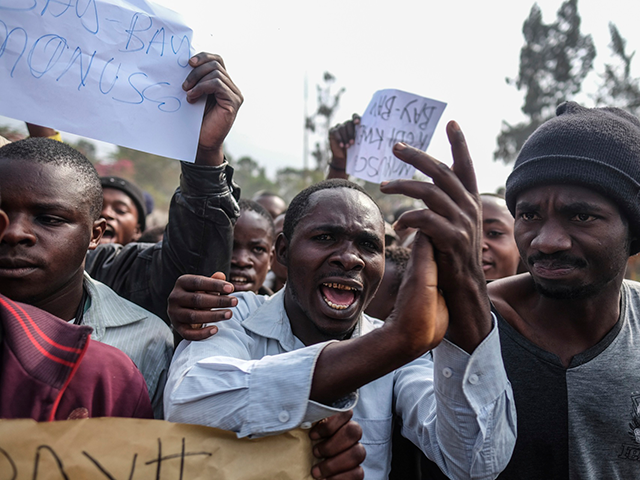
COMMENTS
Please let us know if you're having issues with commenting.